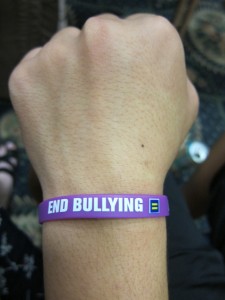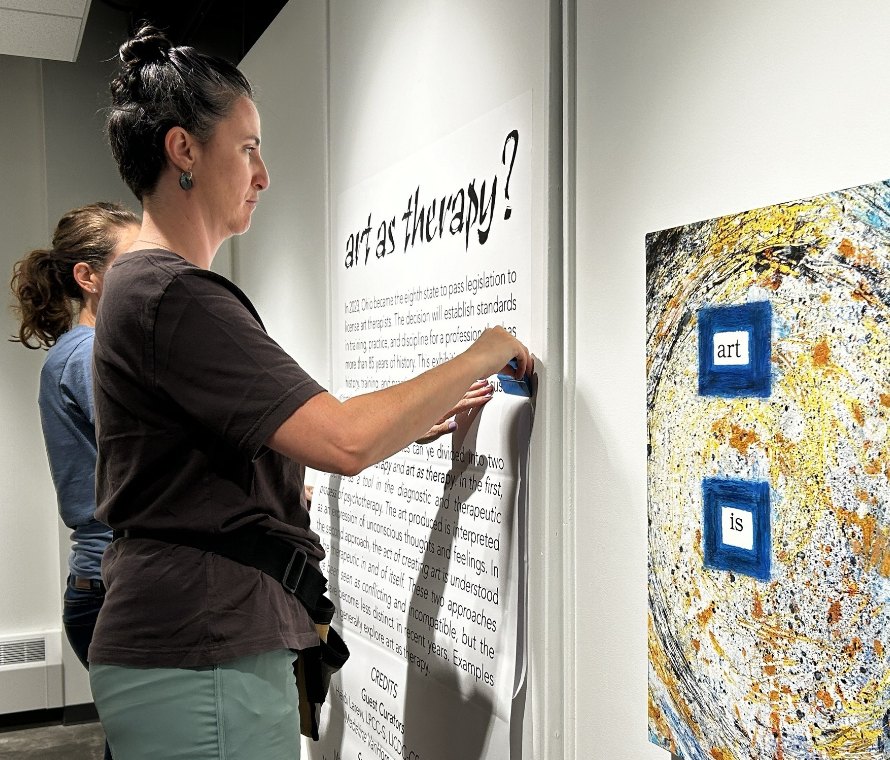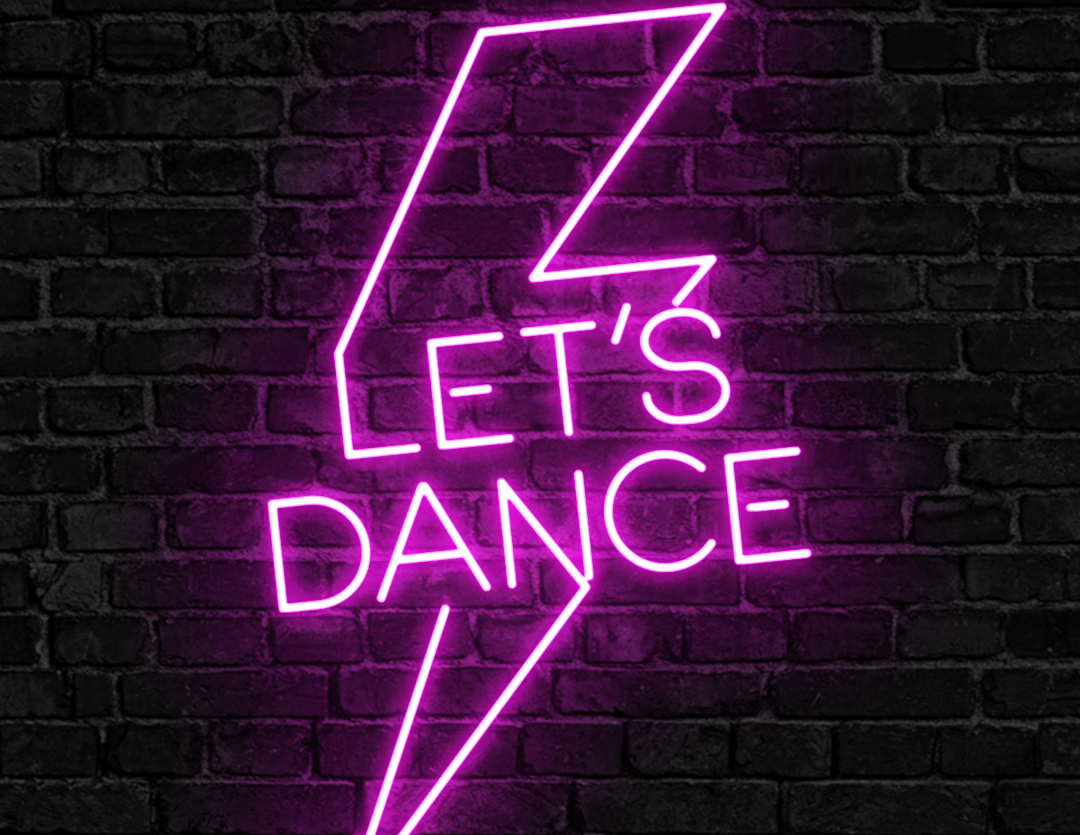Written by: Alexandra Didato
“The goal of this program was simple: Put an end to bullying.”
Eric “Cheeto” Zito, a sophomore at The University of Akron, held a Cyberbullying Awareness program last Wednesday in the Quaker Ballrooms.
Zito collaborated with the UA Counseling Center in the hopes of educating students about the harms of cyberbullying. Zito created the event because he has endured bullying throughout his entire life. He has watched friends, family members and loved ones experience pain and hurt from bullying as well.
Three graduate students from the Counseling Center — Betsy Lehman, Ellen Bronder and Stephanie Judson — helped in the presentation by defining cyberbullying and explaining how to help those who are experiencing it.
Lehman defined cyberbullying as “unwanted aggressive behavior, or showing hostility towards another person.” She said that cyberbullying occurs when someone uses a “real or perceived power imbalance” against another person to cause pain and distress.
The audience was asked to participate by describing forms of bullying that they had seen or experienced. Angry tweets, emails, instant messages, Facebook posts and blog posts were brought up. Lehman asked audience members to raise their hands if they had ever utilized any of these social media to talk bad about someone else. She then asked the same question of those who had experienced cyberbullying. The numbers of raised hands were almost identical.
“Many students think that when they’re bullied, they’re all alone in the world, and that no one else is going through what they’re going through right now,” Zito said. “To those students, we wanted to show them there’s support and that they have friends to talk to. The other handfuls of students are bullies, but don’t realize that they are. To those students, we showed them what bullying truly was, and how painful it can be for the person being bullied.”
Cyberbullying is dangerous because, unlike physical bullying, which people can avoid by going home or escaping to their safe places, you can be cyberbullied wherever you are.
Since cyberbullying can occur without the bully being present, the bully has no real conception of how much their words hurt the person they’re attacking.
“You never know you’re hurting someone until they speak up,” Zito said.
Bronder continued the presentation by mentioning that there are many different ways to cyberbully, including posting suggestive or embarrassing pictures of someone without their consent, signing a friend up for a porn site, or submitting a dating ad without their consent.
The prevalence of cyberbullying is increasing. According to the Counseling Center, recent studies have found that 27 percent of college students have experienced cyberbullying. This is just the percentage that has reported abuse — many others are experiencing cyberbullying but haven’t talked to anyone about it yet. It is estimated that 50 to 75 percent of those who are cyberbullied do not report it.
Another scary factor of cyberbullying is that you don’t necessarily know who is attacking you. You may hear of a rumor going around the Internet about you, or notice hate posts, but you don’t know who started or instigated the rumor or the posts.
The mental health of those who are cyber bullied is a great concern. Multiple stories of those who committed suicide after experiencing excessive cyber bullying have been talked about on the news as well as major websites.
Judson provided websites such as loveislouder.com and wegiveadamn.org (which is geared toward the LGBTU community) that one can go to for help with cyberbullying. “We are here to support you; don’t hesitate to come see us,” Judson said. “No problem’s too big or small.”
After the presentation by the counseling center, Residence Hall Programming Board and Residence Hall Council hosted an activity in which the audience shared cruel and damaging words that had been said to them through online media sites. The activity showed the audience that everyone in the room had been affected by online bullying at one point or another in their life.
After the activity, two UA students shared their personal stories of cyberbullying, and how they recovered from the abuse.
Zito was one of the students who shared his story. He explained how his experience being bullied led him to come up with his new name, Cheeto. “Eric was a personality that was hated by many; it was a person that was lonely and in a mind set that saw he would always be worthless,” Zito said. “So, I came up with an alternate personality, Cheeto. Cheeto was outoging, fun and someone that meant to something to everyone. Cheeto was the polar opposite of Eric and was everything I always wanted to be.”
Zito ended the program on an optimistic note.
“Let your past drive you to your future. But once you’re there, leave the past where it’s meant to be.”






